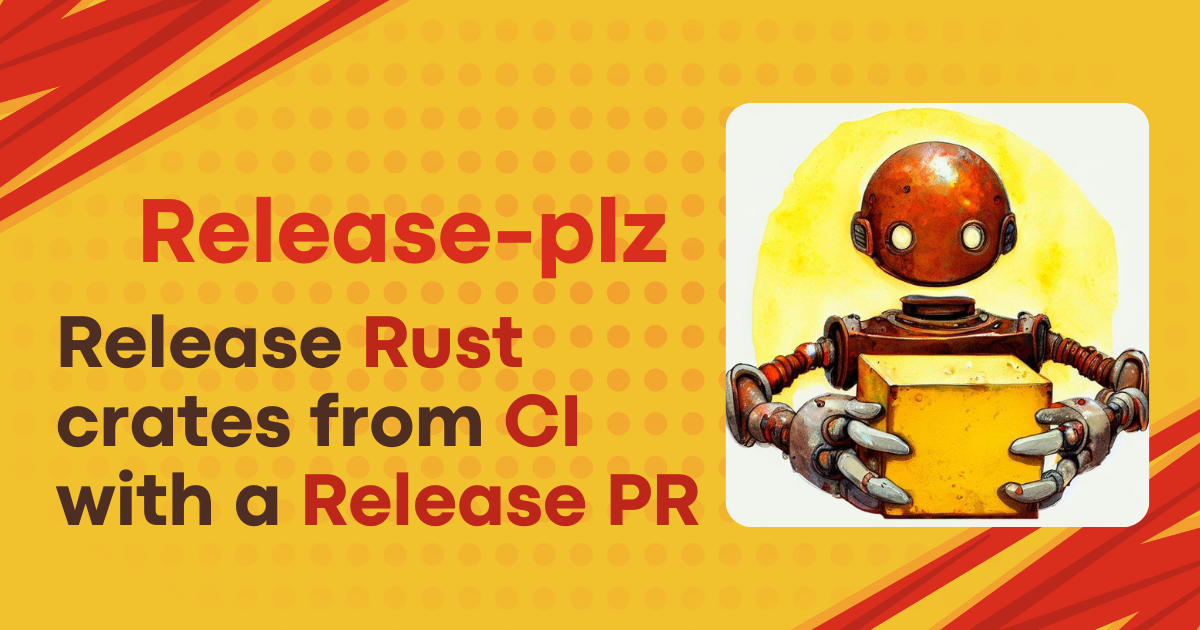Release-plz helps you release your Rust packages by automating:
- CHANGELOG generation (with git-cliff).
- Creation of GitHub/Gitea releases.
- Publishing to a cargo registry (
crates.ioby default). - Version bumps in
Cargo.toml.
Release-plz updates your packages with a release Pull Request based on:
- Your git history, following Conventional commits.
- API breaking changes (detected by cargo-semver-checks).
Release-plz maintains Release PRs, keeping them up-to-date as you merge additional commits. When you're ready to create a release, simply merge the release PR.
When you merge the Release PR (or when you edit the Cargo.toml versions by yourself),
release-plz:
- Creates a git tag named
<package_name>-v<version>(e.g.tokio-v1.8.1). - Publishes the package to the cargo registry by running
cargo publish. - Publishes a GitHub/Gitea release based on the git tag.
Learn how to use release-plz in the docs.
There are two ways to run release-plz:
- GitHub Action: Run Release-plz from CI. The action both updates and releases your packages.
- CLI: Run release-plz from your terminal or other CI systems (Gitea supported).
Here you can find the public repositories using the release-plz GitHub action in CI:
In RustLab 23, I showed how release-plz simplifies releasing Rust packages, why I created it, and what lessons I learned:
- release-please: release-plz is inspired by release-please, but instead of determining the next versions based on git tags, release-plz compares local packages with the ones published in the cargo registry. Plus, release-plz doesn't need any configuration and is optimized for Rust projects.
- cargo-smart-release: Fearlessly release workspace crates and with beautiful semi-handcrafted changelogs.
Parts of the codebase are inspired by:
Licensed under either of Apache License, Version 2.0 or MIT license at your option.
Unless you explicitly state otherwise, any contribution intentionally submitted for inclusion in the work by you, as defined in the Apache-2.0 license, shall be dual licensed as above, without any additional terms or conditions.



